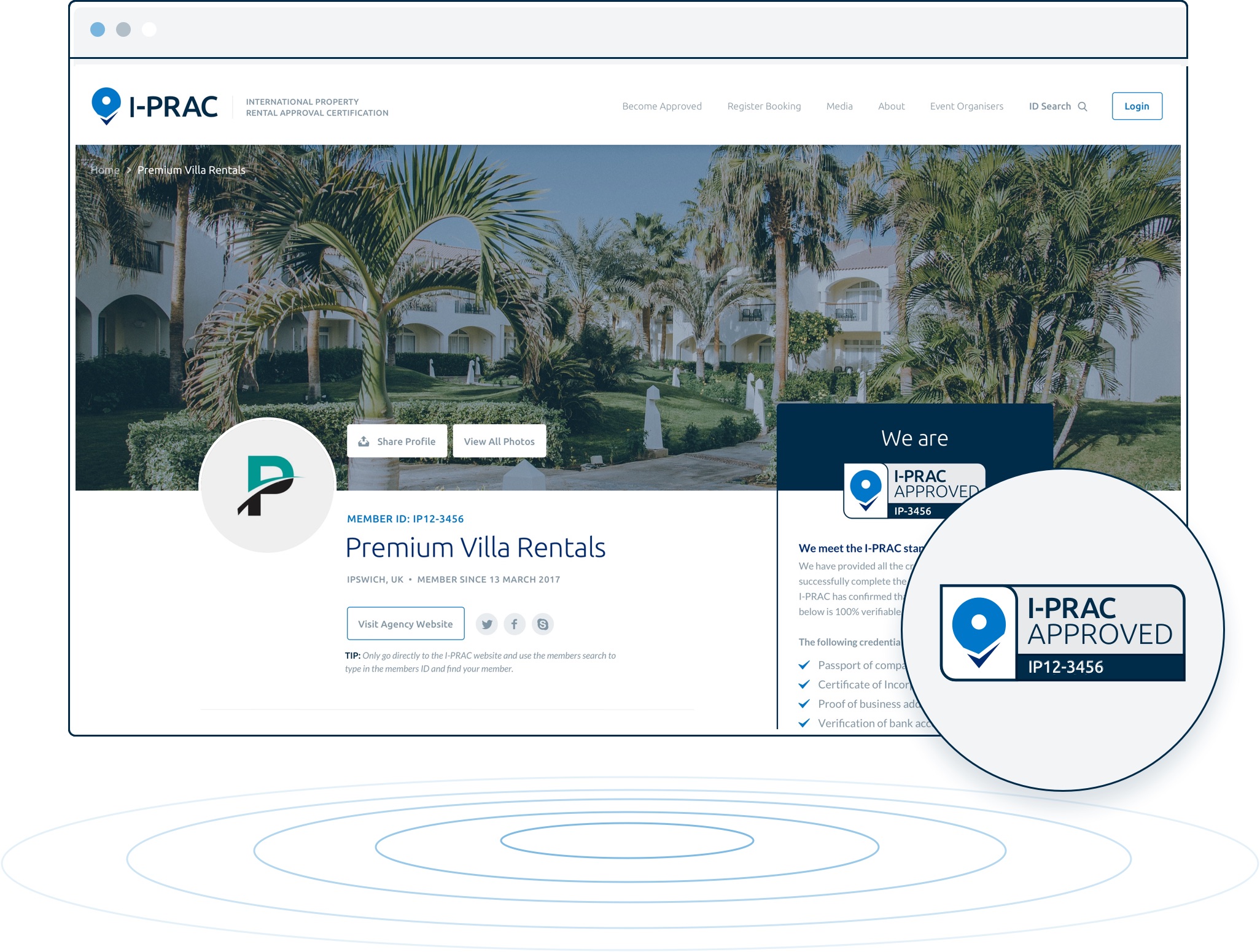When booking holiday accommodation, the first port of call for many travellers nowadays is Airbnb, Booking.com or another online travel agency (OTA). These websites let hotels and rental property owners list their properties alongside thousands of others, and in front of a global audience of millions, with a percentage of every booking going to the OTA as commission.
Given their size and popularity, it can be easy for travellers to assume that it is perfectly safe to book accommodation through a platform such as Booking.com or Airbnb. However, a number of recent news stories demonstrate how fraudsters are creating fake listings on the sites to con unsuspecting travellers out of significant sums of money – a trend that is having a detrimental impact on the short-term rental industry as a whole.
Heartbreak in Hvar
One of the most shocking scams of late involved a group of friends from Paris who had booked a luxury villa on the Croatian island of Hvar through Booking.com.
As reported in The Mirror and numerous other publications, the group paid €6,240 (£5,500) for a 14-night stay at ‘Villa Felipa’, which promised “dreamy panoramas” and a “jewel-toned swimming pool”. However, when arriving at the address provided, they were greeted with nothing but wasteland.
Nobody answered when the group attempted to call the ‘owner’ of the non-existent villa, who had been responding to messages until payment was made the week before the group arrived in Hvar. They eventually had little choice but to book a hotel for their first night before renting a new villa the following day – which was offered to them on flexible payment terms.
One of the travellers said she spent five hours on the phone to Booking.com and wasn’t initially offered compensation or help finding alternative accommodation. In a tweet, she claimed a customer service adviser told her “it is not their problem” if they have to sleep outside.
@bookingcom Arrived in Croatia this day 18/08/19. The villa that we booked and paid 6420€ for a group of 10 people, located on the island of Hvar turns out to be a scam.
— Julie (@JulieFelice_) August 18, 2019
Booking.com has since provided a full refund, plus cover for relocation expenses and an additional amount as a gesture of goodwill. However, with reimbursement taking up to ten working days, two members of the group were forced to go home early, and the remaining ten travellers were unsure whether they’d be able to stay for the full 14 days.
A Growing Problem
Unfortunately, the above story is not an isolated case. Search online and you’ll find further tales of fraudsters targeting Airbnb and Booking.com, as well as other sites including Hotels.com, leaving travellers out of pocket and without anywhere to stay.
In the UK alone, holiday-related fraud was accountable for total losses of £7 million in 2018, with 25% of reported cases relating to the sale of accommodation. However, these numbers are almost certainly higher as I-PRAC research shows that 55% of people wouldn’t report holiday rental fraud if they fell victim to it.
It all begs the question of how, or why, the likes of Airbnb and Booking.com are allowing fraudulent operators to post fake holiday listings on their sites.
A large part of the problem is the business model of both platforms. Because they make their money through commission, Airbnb and Booking.com rely on having as many property listings as possible. So important is this number that it has actually become a significant source of competition between the two.
What this means in practice, however, is that it’s relatively easy to get a property listed on Booking.com and Airbnb, regardless of whether it actually exists. All it really takes is the creation of an account, along with a listing that includes property photos, descriptions and price details.
Neither platform conducts a thorough verification process to check the credentials of the people who are listing properties on their site. This leaves the door open for fraudsters to set up fake listings and convince people to pay them directly via wire transfer, rather than using the platform’s own payment facility. Photos of real properties are often sourced from elsewhere online to entice people into booking, along with fake reviews.
“Fraudsters are studying how the short-term rental industry is operating and using this knowledge to commit serious fraud – leaving travellers heartbroken in the process. However, the industry is underestimating the level of intelligence and investment that fraudsters are dedicating to their operations.”
Even more worrying is fraudsters’ use of channel manager platforms to get their fake properties listed on hundreds of booking platforms worldwide. I-PRAC believes this is becoming common practice, and something that demonstrates the increasing sophistication of fraudsters.
What Does the Future Hold?
It’s evident that Airbnb and Booking.com face a significant challenge in balancing their commercial interests with the need to protect travellers from rental fraud. Yet, with a report estimating that total fraud losses for OTAs will rise by 19% to $25 billion by 2020, there’s clearly more than a moral incentive for the platforms to eradicate fraud.
For now, it doesn’t look like Airbnb and Booking.com will be making any significant changes. However, with each new case of rental fraud, more harm is caused to the industry, and it becomes harder for legitimate operators to differentiate themselves from fraudsters. Fortunately, organisations like I-PRAC are providing a viable solution to this problem.
I-PRAC is a verification platform that vets short-term property rental owners and agencies worldwide, giving travellers peace of mind when booking accommodation. To become I-PRAC approved, property owners and agencies must complete I-PRAC’s robust application process, which involves checks on passports, bank details, utility bills and other forms of documentation. As well as working closely with governments, I-PRAC draws on sophisticated technology and its intimate knowledge of the holiday rental industry to inspect every detail of an applicant’s property listings, from photos to reviews.
If I-PRAC is satisfied with an applicant’s credentials, they will be formally approved as an I-PRAC member, giving travellers the confidence to book directly with them. Once a traveller has registered their booking through the I-PRAC website, the I-PRAC member will confirm the booking and the traveller’s payment will be 100% guaranteed against rental fraud.

With trust in OTAs falling amid a rise in rental fraud, verification bodies such as I-PRAC are ensuring travellers can book accommodation, safe in the knowledge they are dealing with genuine rental professionals. At the same time, many property owners and agencies are reconsidering their approach to listing with OTAs, as commissions increase and more fraudsters create listings on the platforms.
However, with I-PRAC continuing to educate travellers on how to avoid rental fraud, consumers will start to feel more comfortable about booking directly, maximising revenue for owners and agencies in the process. Direct bookings also bring the additional benefit of instant payment, which isn’t usually available through OTAs and rental marketplaces.
Platforms like Airbnb and Booking.com continue to be a great way of marketing a property, but to retain the trust of owners and consumers alike, they will need to work with third-party operators to remove fraudulent listings and introduce fairer payment terms for owners.
One smaller but popular booking platform is already exploring how it can utilise the technology and expertise of I-PRAC to safeguard consumers against rental fraud. As such, I-PRAC expects to grow to over one million members worldwide in the next three years.
If you’d like to become an I-PRAC member and distinguish yourself from fraudsters, apply today or get in touch for more information.



